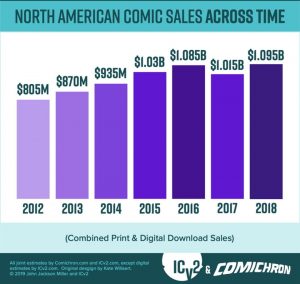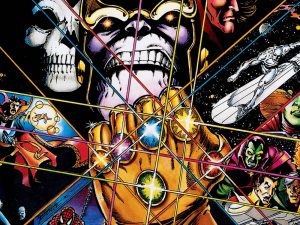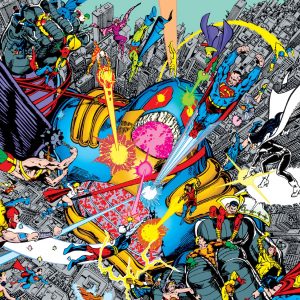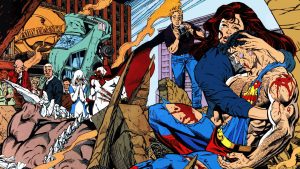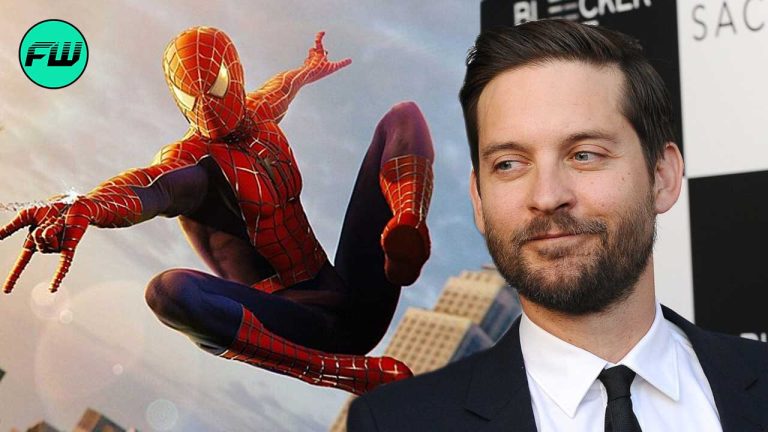With the digital revolution gripping the entire globe, many industries became redundant. Access to data on the tip of your fingerprints lead to a revolution in many fields! The Comic Book Industry was hit the hardest. It tried to adapt. After a long arduous attempt at rehabilitation, the comic book industry survived its fated downfall. But the threat was not averted. It was merely postponed. The Comic Book Industry’s end might be nearer than you expected it to be. The decline of the industry, which has become too huge an effect to be overlooked, will eventually affect the superhero genre and the superhero movies we have come to love and adore.
The Marvel Cinematic Universe, the DC extended Universe, the Venom-Verse and the likes – every superhero work of fiction is under threat. Let’s discuss the “hows” and “whys” of this predicament.
No matter what the Comic book experts and pundits have to say against the word of YouTubers and Comic Book bloggers, the state of the comic book industry is in dire straits. A recent article from a prominent magazine stated that the comic book industry’s biggest year in the last decade was 2018. Industry representatives claim that the amount of revenue generated by sales of comic books stood at a whopping 1.1 Billion US Dollars.
But the numbers that led to the eventual growth was not exponential. It was a gradual and minimal year to year growth rate. Moreover the majority of revenue, as stated by a prominent comic book industry think tank ICV2, was not generated by the sale of superhero comic books by the industry’s two biggest giants Marvel and DC. Instead, it was because of the sale of Children’s Graphic novels.
A phenomenon has been recorded by comic book bloggers. They have been predicting this scenario since years. The MCU started a revolution in the industry. For the first time, a comic book publisher had a way of generating money with their copyrighted characters other than the conventional comic book streams. Movies were a great alternative. Following the MCU model, the end goal of most comic book publishers has been to ensure that their superheroes get a move deal. To do that requires added focus on the story line and character development of their flagship heroes.
This is hurting the overall industry because it is hurting the quality of the comic books being released to the market by making the comic book issues more monotonous and generic. To top it off, many of the superhero lines are being discontinued despite promising prospects because they do not get movie or TV deals.
Two changes in general are affecting the industry big time. The first is – the traditional ‘book store channel’ model is flat-lining. Chain & independent bookstores, Amazon and other online retail stores, have already surpassed dedicated comic book stores in North America. Graphic Novel sales, which stood at 635 Million US Dollars in 2018, have also surpassed traditional print sales which were 360 Million US Dollars in 2018. The deficit has only widened in 2020 and there seems to be no way to bridge that gap.
The second reason is, as we had mentioned earlier, the Kid Friendly Content is getting a major boost within the publishing domain. Most of the Print Industry is diverting its resources to cater to this previously untapped category.
David Steinberger is the CEO of Amazon’s Digital Graphic Novel service called Comixology. In an interview in the New York Comic Con Conference in 2018, he said that a major reason the comic book industry is suffering a negative impact is because of the rise on On-Demand Streaming Services. People are getting addicted to the Binge Consumption Mentality. The Printed Comic Books cannot hope to penetrate that market because they are periodical in nature. Each issue requires time, effort and patience to be released into the market.
This oddly puts the ball firmly in the court of the superheroes. Kind Friendly Content is driving the industry, with more than 20 per cent of content sold in comic book stores and 39 per cent in book stores being Children’s Graphic Novels. Mangas now constitute 41 per cent of overall sales in the Printed Books Industry. The Capes and Cowls merely constitute 10 per cent and 15 per cent in the comic book and general book stores.
Now you must be thinking – how does it matter when the superheroes genre is absolutely conquering the motion picture domain? Marvel and DC’s characters are all the rage in the theaters. Granted there is media dominance, the very source of the superhero movie industry – the comic books, seeing a sharp decline in sales and quality has to be treated as a massive red flag.
The reason many of the superhero movies conquered the Box Office were because of successful story arcs that were published by Marvel and DC years ago. The superhero movies tend to always rely on successful story arcs. MCU’s Avenger’s Infinity war was based on the universally acclaimed Infinity Gauntlet. Batman V Superman: Dawn of Justice took leaves from Frank Miller’s widely acclaimed The Dark Knight Returns. Without tried and tested sources, the superhero movies in the future will have to rely on original non-comic book scripts. A majority of the superhero movies will fail because the experimental plot might not be agreeable to the audience.
In the 1980’s, the comic book industry saw a sharp increase in revenue owing to the rise in popularity of superheroes. The 1990’s marked a period of decline followed by a surge in comic book sales after movies like Fox’s the X-Men series and Sam Raimi’s Spider-Man trilogy gripped the planet. Right now, even with the stellar success of the Marvel Cinematic Universe and the DC Extended Universe, the comic book industry has not been able to replicate a similar phenomenon.
Despite launching multiple original comic book issues and arcs, only a few of them managed to survive the new age comic book readers’ expectations. A few random and infrequent successes like DC’s Dark Knights: Metal and Doomsday Clock and Marvel’s X-Men Re-launch is not going to change the inevitable. Dark Days lay ahead for your favorite superheroes.
Enjoy it while it lasts folks.




